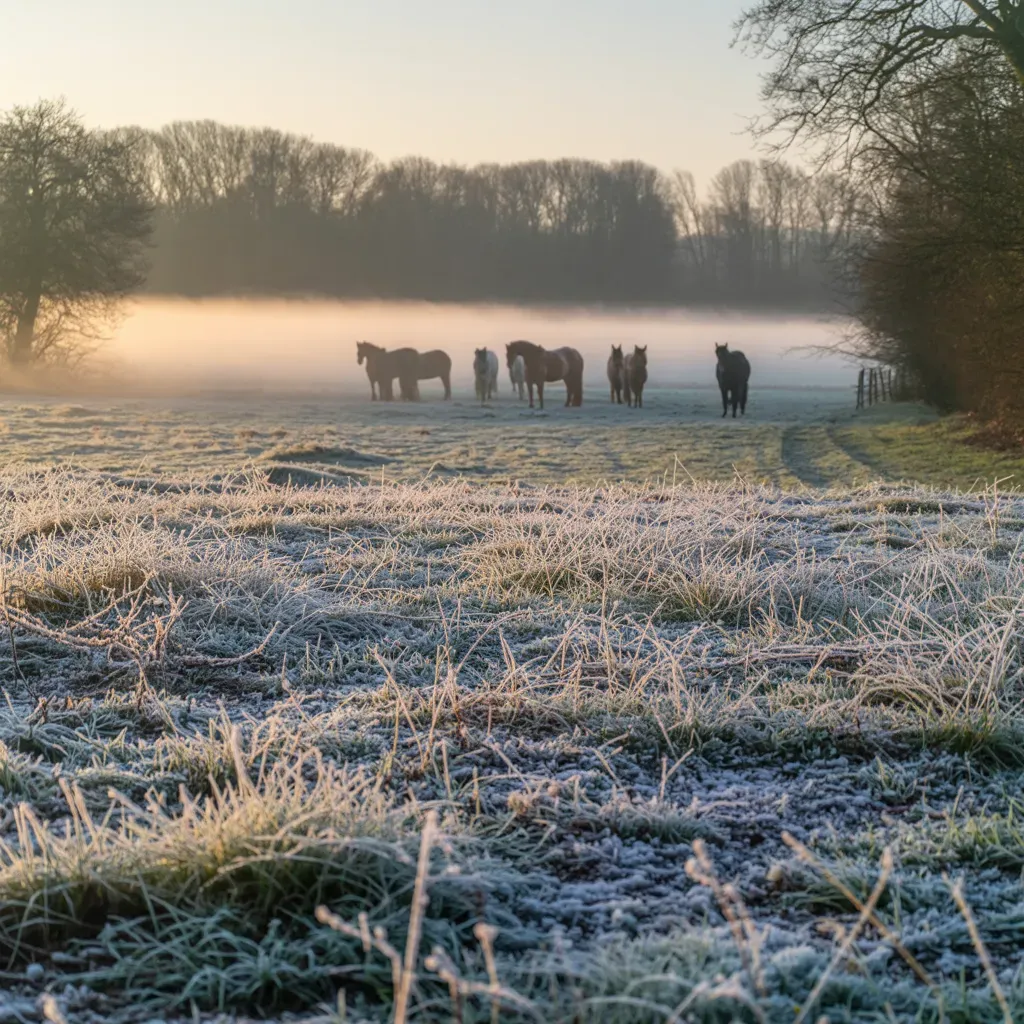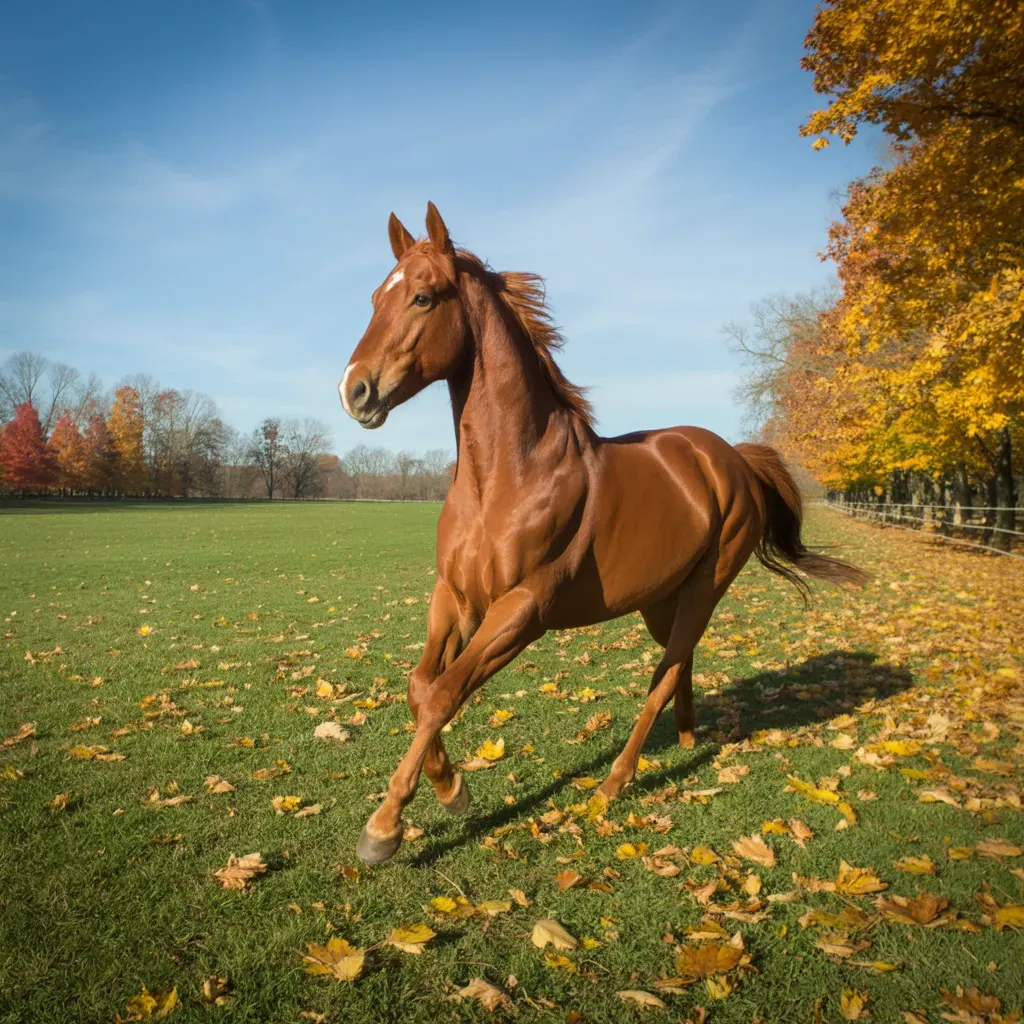The January Wellness Kickstart
Introduction to 'functional' equine wellness
Image - our horse herd, winter 2020. L-R - Cookie , Murf , Pops and her lime-green feedbowl barely visible behind William, who's half-hidden behind Carms, and finally MacAttack
Back when I started EquiNatural in 2008, amidst my makeshift office on the dining room table and juggling part-time pub jobs to keep me in an occasional glass of red wine or three, I found myself drawn to using the term 'holistic' in our social and blog posts. It seemed appropriate for the direction I wanted EquiNatural to follow - treating the
whole horse, and to enlighten towards a more naturopathic approach to support a healthier lifestyle for horses with the highest quality, organic herbal supplements.
Now cut to 2014 and my ever expanding studies and research led me to the Institute of Functional Medicine (IFM) - the medicine of 'why', which is deeply rooted in medical science but which also revealed that the ethos behind 'holistic' and 'functional' is similar, just articulated differently. Whichever way we call it though, it's about treating the ‘whole’ by exploring the interconnected aspects then connecting the dots, rather than addressing only the surface symptoms and ignoring what's going on below. I've been studying with the IFM ever since.
So, for our January Wellness Kickstart, let's delve into equine ‘functional’ wellness for the year's first quarter, outlining how embracing these principles can contribute to the well-being of our horses.
It also helps to stay mindful that horses are instinctive, sensitive beings who absolutely live in the rhythm of nature. Each seasonal change provides a structure and guideline for our horses’ overall health, specifically how they naturally maintain their wellness, and importantly how they avoid illness. Each season puts different demands on different internal systems, so the related organs need to be in optimum health to provide the necessary protection as the seasons change.
The basics of equine functional wellness: treating the whole horse
Functional equine care means considering the complete horse, taking into account their physical, mental, and emotional dimensions. This will ensure that we recognise the interconnections of these factors which will keep us focused on the overall health of our horse.
Equally the mind-body connection emphasises how a horse's mental and emotional state can impact their physical health. Stress and anxiety, for example, can manifest in exhaustion with poor digestion and stomach ulcers, alongside a compromised immune function and significantly reduced overall performance.
Fueling the equine engine
A species-appropriate, nutritionally balanced, grass-forage diet lays the foundation for our horse’s health. Integrating the highest-quality, certified organic phytonutrients, grown without the use of agri-chemicals, and hi-spec natural (non-synthetic) mineral balancers provides their additional nutritional needs, while encouragement of hydration further contributes to their well-being.
Preventive care: a proactive approach
Taking a proactive stance towards our horse’s health proves more beneficial than having to react to issues as they arise - many herbalists actually describe tonic herbs as "herbs for healthy (people)", as in, why wait for when health is broken? Implementing preventive measures for known seasonal challenges before they escalate is a key aspect of maintaining ongoing well-being.
Natural movement and exercise: embracing the equine spirit
Recognising the value of natural movement for a horse's physical and mental well-being is paramount – in the wild a horse is meant to walk with their band for at least 20-30 miles/day, seeking out a diverse variety of low-nutrient high-fibre grasses to eat. From our side this means providing opportunities for turnout freedom, natural foraging, and allowing horses to express their innate behaviours with their buddies to ensure a healthy and mentally balanced lifestyle.
Natural therapies: complementary well-being
Complementary therapies, i.e. acupuncture, different bodywork modalities, physiotherapy or chiropractic care, to name a few, can work beneficially alongside traditional approaches. These therapies can promote deep relaxation and balance, and are guaranteed to contribute to an overall sense of well-being.
Emotional well-being: nurturing bonds
Positive human-horse relationships are central to our domestic horse’s emotional health. Engaging in bonding activities, playing and spending quality time together, understanding our horse's body language, and always looking to minimise stressors, will all play a beneficial role in shaping our relationship, as well as our horse’s trust in us and again, their overall well-being.
Environmental considerations: creating a safe sanctuary
Creating a horse-appropriate natural environment involves more than just providing shelter. Friends, forage, and freedom form the trinity of a safe equine home. Field turnout or implementing a track system, ad-lib hay stations, making sure they have freedom and choice, and designing shelters or stables that prioritise their comfort and safety, will all contribute to a beneficial living space.
Owners/carers community and support: strength in numbers
Being part of a supportive equine community, whether through social media groups or local networks, can be an enriching, positive, and really valuable practice for us. Sharing our experiences and always questioning will further our approach to support our horse’s care.
Continued learning: adapting with the latest health updates
Staying informed and updated is really important to move with the times. Research and studies evolve, meaning we need to adapt our equine care practices to ensure our horse’s continued well-being. Maintaining an open-minded approach to continual learning will help us continue to create an environment where our horse will continue to thrive.
Summary
The January Wellness Kickstart encourages a functional approach to equine well-being. Whether we label it as holistic or functional, the underlying principle remains unchanged – a commitment to treating the whole horse, acknowledging the intricate web of factors that contribute to their health, happiness, and their welfare. 😉
So, here's to January continuing to embrace functional principles, promoting our horses’ health and nurturing the bond we share with them. The goal is to ultimately bring fulfillment, knowledge, and positive outcomes, ultimately contributing to laying the well-being groundwork for the forthcoming seasons.
Coming up
- Tips, quotes, and other useful bites to start the year with a functional focus.










